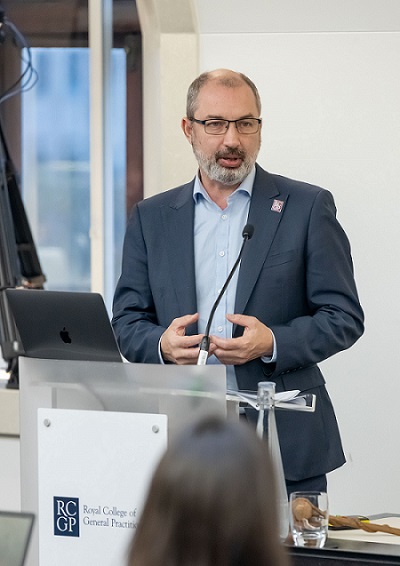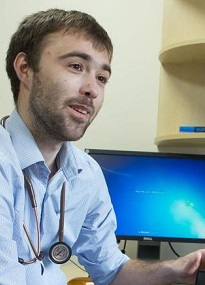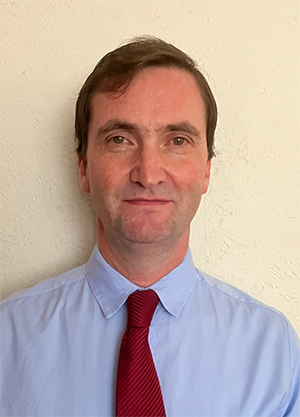
The College is calling for a ‘patient safety alert’ to be introduced in general practice so that family doctors can warn when their surgeries are running over maximum capacity
This is one of seven ‘asks’ in the new RCGP manifesto for the upcoming General Election, launched at the recent annual conference in Glasgow.

We want to see a system introduced in every Integrated Care System, modelled on the Operational Pressures Escalation Levels (OPEL) Framework already used by hospitals, enabling practices and GPs to flag unsafe levels of workload, triggering support from their local health system.
Surgeries would be able to temporarily suspend some non-priority activities during periods of excessive workload, enabling the surgery to reprioritise routine and non-urgent activity and ensure patient safety is prioritised.
This power would mirror the flexibility granted by the government to GPs during the COVID-19 pandemic and allow Integrated Care Systems to work with practices to determine which activities can be temporarily and safely suspended. 'Overflow hubs' could also be set up to support practices in distress at peak times and allow for additional funding for locum cover to temporarily increase a practice's workforce.

College Chair Professor Kamila Hawthorne said: "General practice is a safety critical industry yet GPs have none of the mechanisms that other safety critical professions, such as the air traffic industry, have in place to protect them.
“Our number one priority is the safety of our patients, but GPs are doing more and more to try and meet the rising demand for our services. When you’re fatigued, you’re more likely to make mistakes and GPs and our teams deserve to do our jobs in a supportive working environment where we can provide excellent care without jeopardizing our own health and burning out.”
“The OPEL system has been operating effectively in hospitals for many years and it’s time that general practice had our own equivalent. It will enable practices to sound the alarm and call for help before the care of patients is compromised.
The manifesto also calls on all the major political parties to include the following steps in their own manifestos so that the next government commits to:
- Ensuring patients get the care they need, closer to home, by increasing the share of NHS funding for general practice;
- Providing more support to patients in deprived communities;
- Ensuring every patient who needs to see a GP can do so quickly and safely by taking action to grow the GP workforce - including expanding the number of GP training places a new nationally funded ‘one-stop-shop’ retention programme and fully funded protected learning time for GPs at all stages of their careers;
- Giving every patient access to a modern fit for purpose general practice building, by investing at least £2 billion in infrastructure;
- Freeing up GPs to spend more time with patients; and
- Guaranteeing permanent residence for international medical graduates qualifying as GPs to make sure they can work in the NHS.
Prof Hawthorne said: “There’s no doubt that general practice will be a key battleground in the run-up to the next general election, but the last thing we want is for general practice to become a political football, with parties of all persuasions kicking around vote-winning promises about tougher access targets that will be undeliverable without addressing the root cause of workload and workforce pressures. It will be difficult to stop this from happening and we need to be in a strong position to resist it.
“Our manifesto clearly tells politicians, and the public, what we believe is needed to bring about effective, long-term change and we want all our members to write to their MPs and prospective parliamentary candidates and persuade the decision-makers to really listen.”
Read more
Thank you for your feedback. Your response will help improve this page.



